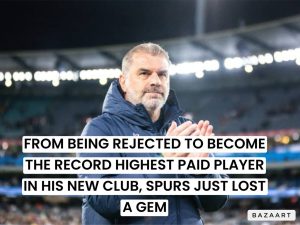Real reason for Lopetegui’s underwhelming first West Ham team selection revealed after facing backlash from fans
West Ham United fans have not been shy about expressing their disappointment and frustration with Julen Lopetegui’s team selection for his first competitive match in charge against Aston Villa. With the start of the new Premier League season, the club had much to look forward to, including a new manager, fresh coaching staff, a revamped footballing philosophy, and eight new signings. These changes fueled a sense of anticipation and excitement among the Hammers faithful. However, this optimism quickly turned into dismay when the starting lineup was revealed, showing a team that closely resembled the West Ham of old.
Despite making a number of impressive signings during the summer transfer window, Lopetegui opted to start only two of them—Guido Rodriguez, who joined on a free transfer, and Max Kilman, a £40 million defensive acquisition. The decision to field just two new players in the starting eleven for a high-profile Premier League opener against Aston Villa left fans both puzzled and disappointed. It was widely expected that several of the new recruits, including Jean-Clair Todibo, Aaron Wan-Bissaka, and Crysencio Summerville, would feature prominently in the lineup, especially given that they had all completed full pre-seasons with the team. Moreover, Niclas Füllkrug, who had recently represented Germany at the Euros and trained with Borussia Dortmund, was fit and ready to play but was left out of the starting lineup.
The atmosphere at the London Stadium was charged with anticipation ahead of the match, but the announcement of the official team lineup was met with audible groans from the stands. Fans had been eagerly awaiting the opportunity to see the club’s new signings in action, particularly Mohammed Kudus, who many hoped would be deployed in his preferred central role. Instead, Kudus was positioned on the left wing, while familiar faces such as Tomas Soucek, Vladimir Coufal, and Michail Antonio were chosen to start the game. The selection of Konstantinos Mavropanos to partner Kilman in central defense also raised eyebrows, with many questioning whether the Greek defender was ready to take on such a crucial role in a high-stakes match.
Various theories began circulating among supporters and pundits alike regarding Lopetegui’s selection choices. Some speculated that Aaron Wan-Bissaka’s omission was due to the fact that he had suffered a mild concussion during pre-season against Liverpool and had only just completed the mandatory 10-day concussion protocol. Others suggested that Jean-Clair Todibo, who had only been training with the team for a week, was not yet fully integrated into the squad, and Lopetegui was reluctant to rush him into the starting lineup. Additionally, there were rumors that Lopetegui has a particular fondness for players like Michail Antonio and Tomas Soucek, which may have influenced his decision to start them despite the availability of new signings.
However, the reasoning behind Lopetegui’s team selection goes deeper than simple player preference or fitness concerns. As a new manager stepping into a team undergoing significant transition, Lopetegui understands the importance of maintaining balance and cohesion within the squad. When a manager is tasked with integrating a host of new players while trying to implement a new system and philosophy, it’s crucial to approach team selection with caution. Throwing too many new faces into the starting eleven at once could risk disrupting the team’s rhythm and undermining the work done during pre-season.
Lopetegui’s selection for the Aston Villa match can be seen as a calculated move to build trust and respect within the squad. By starting a number of the club’s long-serving players, he was sending a clear message to the team: “I’m giving you the opportunity to keep your place in the side.” This approach is a classic new manager tactic—allowing the existing players to prove their worth while gradually integrating new signings into the team. It also aligns with Lopetegui’s earlier statements about giving everyone a clean slate under his management.
This strategy is not without its challenges, as evidenced by the reaction from the fans. Many supporters were eager to see the new signings make an immediate impact and were disappointed when this did not happen. However, Lopetegui’s decision to rely on the old guard in his first competitive match is a reflection of his understanding of the delicate balance required in managing a squad undergoing a major rebuild. He is keenly aware that success in such a scenario is not achieved overnight, and his cautious approach is aimed at ensuring long-term stability and success for the club.
One of the more surprising moments during the match came when Lopetegui decided to substitute Jarrod Bowen in the second half. Bowen, who had played just 24 minutes for England over the summer and was the last to return to pre-season training, was managed carefully to avoid the risk of injury or burnout. This decision, while unexpected by some, was another example of Lopetegui’s methodical approach to squad management. He is clearly focused on the bigger picture, prioritizing the long-term fitness and form of his players over immediate results.
Lopetegui’s decision to start players like Soucek, Coufal, and Antonio, despite the availability of new signings, was not simply about maintaining the status quo. It was about creating a competitive environment within the squad, where every player knows that their place in the team is earned, not given. By staying true to his word and giving the old guard their chance, Lopetegui has set the tone for the season ahead. Players who fail to perform to the required standard will be replaced by those who are ready and capable of stepping up, but those who excel will be rewarded with continued opportunities to play.
This kind of healthy competition is vital for a club like West Ham, which is aiming to compete on multiple fronts this season. With the new quality in depth at the club, every player will need to be at their best to secure their place in the team. Lopetegui’s approach ensures that no player can rest on their laurels, and that everyone is pushing each other to improve. This can only benefit the club in the long run, as it fosters a culture of excellence and accountability.
In the coming weeks and months, West Ham fans can expect to see more of the new signings being integrated into the team as they become more familiar with Lopetegui’s system and the demands of the Premier League. The process will be gradual, and there will inevitably be setbacks along the way, but Lopetegui’s long-term vision for the club is clear. He is building a team that is not only capable of competing at the highest level but is also resilient and adaptable enough to thrive in the face of challenges.
As the season progresses, Lopetegui’s decisions will continue to be scrutinized, and there will be times when his approach is questioned. However, his focus on building a strong foundation, fostering healthy competition, and maintaining balance within the squad suggests that he is laying the groundwork for sustained success. The Hammers may be a work in progress, but under Lopetegui’s guidance, they are on the path to becoming a force to be reckoned with in English football. This is a marathon, not a sprint, and while the journey may be challenging, the destination could be one that brings great rewards for West Ham United and their loyal supporters.



